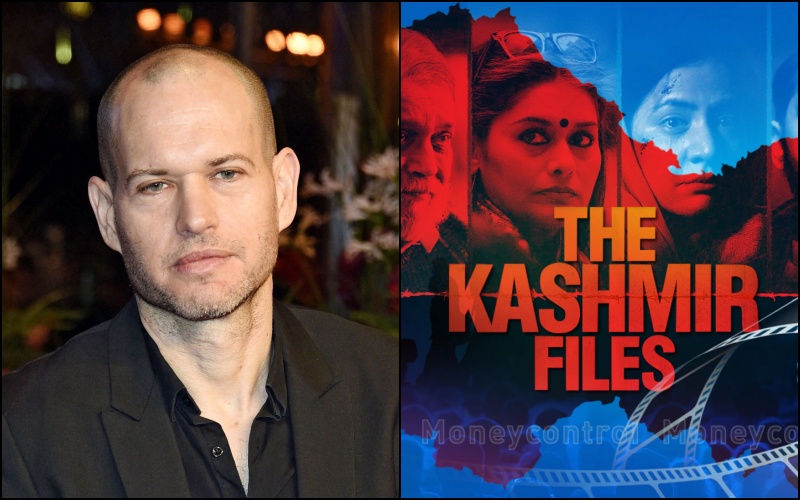Israeli writer and director Nadav Lapid was born in Tel Aviv in 1975. At Tel Aviv University, he majored in philosophy, and in Paris, he studied literature. He released a book called “Continua Bailando” in 2001. On numerous documentaries, he served as the cinematographer. He received his degree from Jerusalem’s Sam Spiegel Film School in 2006. His first feature picture, The Policeman, won a special jury prize in 2011 at the Locarno International Film Festival.
At the 2019 Berlin Film Festival, he received the Golden Bear. The Cannes Feature Festival’s Critic Week featured the world premiere of his movie The Kindergarten Teacher in 2014. He participated in the jury for Critics Week at the 2016 Cannes Film Festival. His less well-known career as a filmmaker has seen him win a lot of honors.
For the competition, he sent Ahed’s Knee, a movie, to the Cannes Film Festival in 2021. He has a new project that he is working on right now. According to reports, Ahed Tamini, a Palestinian adolescent who slapped an Israeli soldier and received a prison sentence in 2017, is the film’s main subject.
Israeli Director Nadav Lapid His relation to IFFI
As the actress Sarit Larry from his 2014 film “The Kindergarten Teacher” received the festival’s Best Actor Award (Female), Nadav has a long history with the IFFI. Lapid was selected as a jury member for International Critics’ Week in 2016.
A History of Nadav-related Controversy
Filmmaker Nadav Lapid is well recognised for supporting Palestine and criticising his own country, Israel. 250 Israeli filmmakers signed an open letter in protest of the Shomron Film Fund, including the 47-year-old filmmaker. According to reports, the group believed it had one objective: to ask Israeli filmmakers to “actively participate in whitewashing the Occupation in exchange for financial assistance and rewards.” The stated film fund’s primary goal is to finance films made by settlers and about Jewish settlements. The senior filmmakers came out in favor of the fund and referred to it as “a new home for creation” after the group of filmmakers, including Lapid, voiced their opposition.
Lapid referred to Israel’s collective consciousness as having a “sick soul” in 2019 during an interview he gave to the Now Toronto magazine about his film Synonyms. According to him, the collective Israeli soul is a sick soul, and the movie discusses the collective Israeli soul. Something fundamentally flawed and nasty exists in Israeli existence. The issue is not exclusive to Israel or Benjamin Netanyahu. However, young, solid Israeli males with confident smiles who don’t question or have doubts indicate this Israeli disease or nature. Israeli citizenship makes them incredibly proud. They ultimately see the world in terms of “Us vs everyone else.”
Lapid attempted to depict his “love-hate” relationship with his motherland in his 2021 film Ahed’s Knee. According to rumors, his experience with “government intervention” inspired the movie. “A type of intimacy with Israel sneaked behind my back and seeped into the screen,” he remarked in a press conference. In contrast to discussing the state of Israel, he continued, “I want to convey how people’s spirits are sometimes transformed, tormented, and distorted by a state, by a place.”
Despite having a negative opinion of his nation, Lapid was appointed chief jury for IFFI. The less well-known director does not appear to have the qualifications to serve as the head jury member of a festival that has existed for more than 50 years.
Recent Controversy at International Film Festival of India (IFFI)
During his remarks at the International Film Festival of India (IFFI) at Goa’s closing ceremony, Nadav Lapid shocked the crowd by criticising the event for including the divisive Hindi film The Kashmir Files in competition.
Lapid spoke on behalf of the jury and praised most of the 15 films that competed, adding:
“We were all disturbed and shocked by the 15th film, The Kashmir Files. It felt like a propaganda, vulgar movie inappropriate for a competitive artistic section of such a prestigious film festival.”
He said, “I feel entirely at ease sharing my sentiments with you here on stage because the festival’s atmosphere can welcome even a critical dialogue, which is vital for art and life.”
The movie, directed by Vivek Agnihotri, tells the story of the departure of Kashmiri Hindus, commonly known as Pandits, from the Kashmir valley, which has a Muslim majority, as a result of an uprising that became more violent in the early 1990s. The video, released in India in March of this year, is said to have stoked anti-Muslim emotions, leading viewers to commit hate speech and call for the murder of Muslims and a boycott of Muslim-owned companies.

